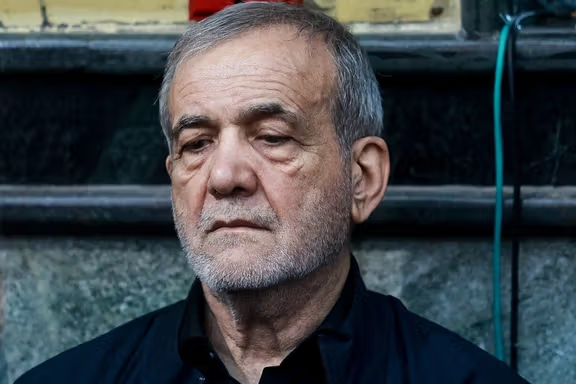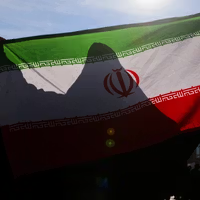The pause shows a swift post-war drive to crack down on alleged Israeli spying is hitting some obstacles even in the hardliner-dominated establishment.
Iran's Guardian Council sent back the controversial bill to parliament for revisions, citing ambiguities in definitions and potential conflicts with Islamic law and constitutional principles.
The draft legislation seeks to impose harsher punishments—including the death penalty—for a broad range of alleged activities defined as espionage or collaboration with Israel, the United States, and other “hostile” states or groups.
The bill, titled the “Intensification of Punishment for Espionage and Cooperation with the Zionist Regime and Hostile States Against National Security and Interests,” was approved by Iran’s parliament late June but faced scrutiny from the Guardian Council, which is tasked with ensuring that legislation complies with Islamic law and the constitution.
"The necessity of precision in legal definitions is critical," said Hadi Tahan Nazif, spokesperson for the Guardian Council. "There is ambiguity in identifying who determines 'hostile states and groups.' It must be clarified which official institution makes that designation."
Tahan Nazif further warned that vaguely defined terms like “creating division” or “undermining national security,” as used in Article 4 of the bill, could infringe on constitutionally protected rights. “Such qualitative language may, in practice, restrict legitimate freedom of expression. These ambiguities must be resolved,” he said.
Among the most contentious points is the bill’s expansion of the crime of “spreading corruption on earth” (efsadfel-arz)—a charge that can carry the death penalty.
The Guardian Council objected to Article 2, which equates“any direct or indirect assistance”to Israel with corruption on earth. The Council said this could lead to capital punishment for acts that do not meet the strict criteria for that charge under Islamic law.
“In Islamic jurisprudence, the conditions for establishing the crime of corruption on earth are specific and strict. Broadening its scope without meeting these conditions is contrary to Sharia,” Tahan Nazif explained.
At the same time, the Council criticized the bill for limiting some cases—such as widespread distribution of unlicensed communications equipment used in organized opposition—to prison terms, when it argued they could meet the threshold for corruption on earth.
Another key concern centers on retroactive enforcement. Article 9 of the bill says that the law applies to offenses committed before its ratification, contradicting Article 169 of Iran’s Constitution, which prohibits retroactive criminal laws.
“No act or omission may be considered a crime under a law enacted after the fact,” Tahan Nazif emphasized, echoing the constitutional safeguard.
Despite its critique, the Guardian Council affirmed the importance of robust legal tools to defend national security, particularly in the wake of the 12-day Iran-Israel war, the spur of the latest emergency legislation.
“Our intent is not to obstruct legislation but to ensure laws are both enforceable and aligned with the constitution and Sharia, while also safeguarding citizens’ rights,” Tahan Nazif said.
Mohsen Dehnavi, the spokesperson for Iran’s Expediency Council, said on Wednesday that its supervisory board supports the general framework of the bill but some provisions in the draft were ambiguous.
A legal path to expanded crackdowns?
The bill follows heightened internal security measures and increased arrests, particularly since last month's war which saw devastation wrought on both sides of the conflict.
On Wednesday, Tehran’s prosecutor Ali Salehi confirmed that several cases involving alleged espionage, intelligence leaks, and smuggling of explosives are under urgent investigation.
“These cases involve individuals accused of sending maps and GPS coordinates to the Zionist regime, as well as transferring explosive materials,” Salehi said at an event in Tehran. “With full support from the judiciary and security forces, investigations are proceeding swiftly.”
Salehi also addressed allegations of espionage tied to the recent conflict: “Once investigations are complete, the public will be informed. The judiciary will not tolerate any actions that compromise national security.”
Escalating rhetoric
The bill and judicial statements come amid intensified rhetoric in Iranian state media. This week, Fars News Agency, which is affiliated with the Islamic Revolutionary Guard Corps (IRGC), published an editorial calling for the mass execution of detainees accused of collaborating with Israel and Western intelligence services.
“In the current conditions, those who enabled the killing of hundreds of Iranian citizens through espionage and weapons smuggling deserve to be executed in the style of 1988,” the editorial said, referencing mass executions of political prisoners. Amnesty International estimates that at least 5,000 people were executed during that period, often following secret trials without due process.
The article described the 1988 executions as “a brilliant chapter” in Iran’s history and saying that the public supports similar action today against what it termed “domestic terrorist networks.”
Definitions and penalties
The legislation, in its current form, criminalizes a broad range of activities under national security offenses.
It introduces the death penalty for espionage or intelligence cooperation with Israel, the United States, or their affiliated entities. The same punishment would apply to the manufacture, transfer, or import of drones for military or surveillance purposes, if deemed to involve "malicious intent."
The bill also imposes prison terms of 10 to 15 years for disseminating content—such as news, videos, or images—considered to harm national security or sow division.
Penalties ranging from six months to 10 years would apply to the use or distribution of unauthorized communication equipment, including satellite internet services like Starlink, depending on scale and intent.
Additionally, the bill allows for retroactive prosecution of offenses committed before its passage, a provision that legal experts say violates constitutional safeguards.
The draft is expected to return to parliament for clarification and possible amendment before undergoing a final review by the Guardian Council.
Last month, in the wake of the war with Israel, Iran arrested over 700 people in a mass roundup, accused of working for the Jewish state.













